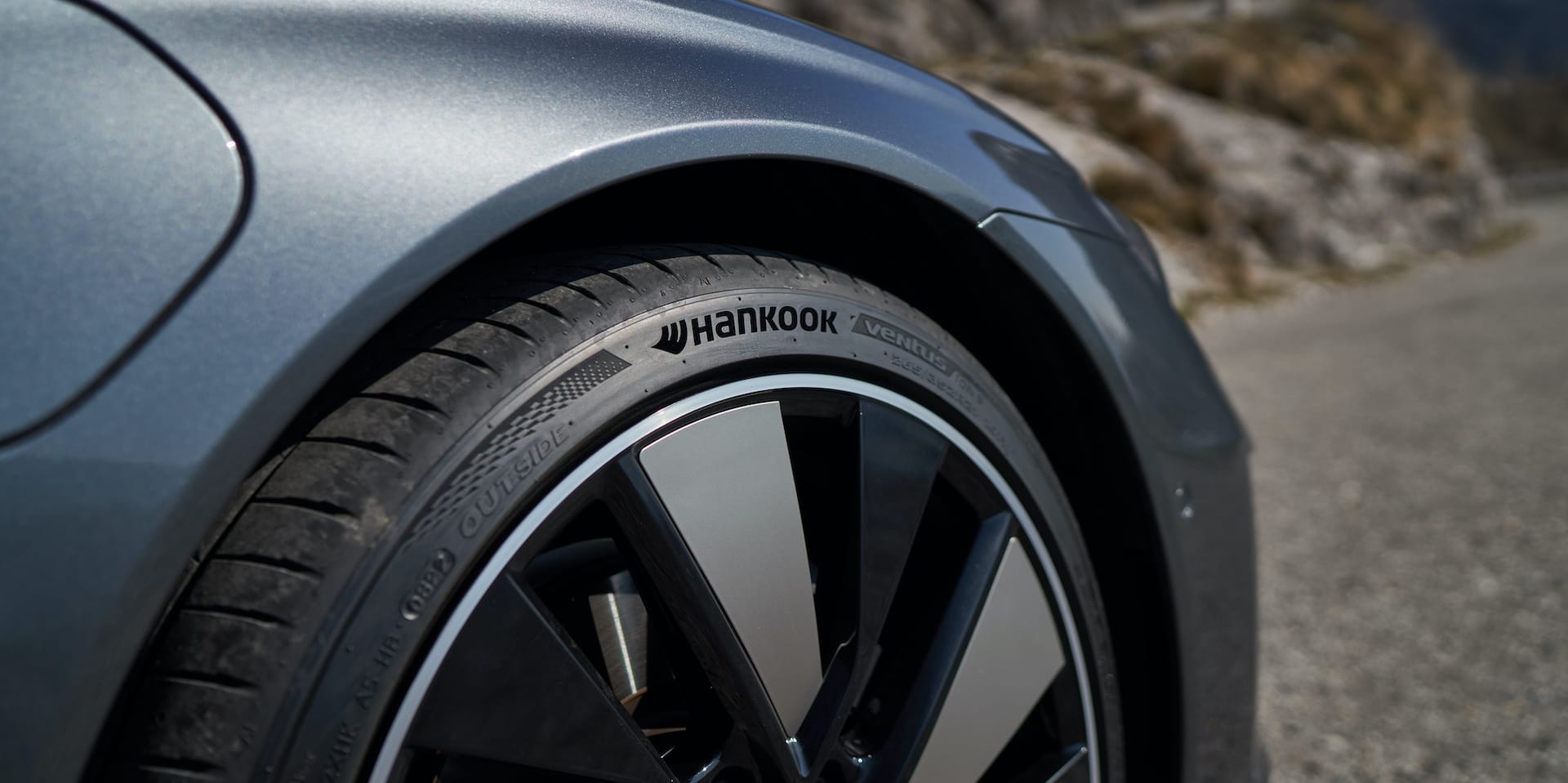There are many things to learn about living with an electric car, but surely that doesn’t extend to the tyres? Shouldn’t the round black lumps of rubber be the same whether fitted to a petrol/diesel car or an electric vehicle (EV)?
Well, there is nothing legally that states you have to use specific tyres on an electric car compared to an equivalent combustion-engined car. But there are practical reasons to choose tyres designed with an electric car in mind.
In recent times tyre manufacturers have started producing such rubber, though they don’t generally like to state they are only for EVs, and car manufacturers are not keen to suggest you should use EV-specific tyres either.
What’s different about tyres for EVs?
Tyres fitted to both fully-electric cars and plug-in hybrids (and even regular hybrids) have to cope with a range of different forces compared to those of a combustion car. The most obvious is weight – EVs carry around heavy battery packs, so significantly more weight bears on each tyre.
The new breed of EV-friendly tyres are constructed in a way, in particular with stiffer sidewalls, to better cope with this weight, which in simple terms means they won’t wear so quickly and there will be less risk of punctures and all the cost and inconvenience such failures cause.
There is evidence that suggests using tyres not specifically designed to carry the weight of an electric car could be asking for trouble. In December 2021, recovery specialist Britannia Rescue claimed that more than a third of the EV breakdown calls it attends are for wheel and tyre issues – double the percentage of petrol or diesel cars suffering similar problems.
Quoting data collected over three years, Britannia added that EV drivers were three times more likely to suffer a tyre issue than be stranded by a lack of battery power. However, it did qualify its findings by stating that tyre issues would generate a higher percentage of EV issues because there are not as many other things to go wrong on an electric car than on a combustion-engined car.
It’s not just about more weight, however. The manner in which EVs deliver their power also affects the tyres. An electric motor offers up all its available torque – ‘pulling power’ – instantly, rather than building it up as engine speed rises, so the tyres have to cope with all this power being put through them at once.
At the other end of the scale is deceleration, which again, EVs like to do differently – a traditional car is typically significantly slowed by pressing the brake pedal, whereas EVs benefit from consistent slowing allowing plenty of ‘regeneration’, passing kinetic energy back into the battery, especially if one drives the car to encourage this as described in our ‘how to drive an electric car‘ feature. And all that extra weight also means more inertia to arrest, so under deceleration there is again more demand on the tyres.
Even the basic compounds, the mix of rubber and silica, of tyres aimed at being EV-friendly is different to those on combustion vehicles. All tyres have to overcome a certain ‘pull’ from the ground they are travelling over, known as ‘rolling resistance’, and the compounds of tyres recommended for electric cars are designed to minimise this rolling resistance as much as possible, in order to increase the car’s range between battery charges.
Several tyre manufacturers also claim that their products designed for electric vehicles are specially ‘low noise’ items. With EVs not making much in the way of other sounds, tyre noise can become more noticeable and even irritating to the car’s occupants.
Why don’t car manufacturers tell you this?
So bespoke EV tyres sound like a good idea but it’s not one that is heavily promoted by either car or tyre manufacturers.
Looking at the spec sheets of mainstream cars available in both combustion and electric form – to give just three examples, the Vauxhall Corsa, the Peugeot 2008 and MG ZS – shows quoted tyre size and ratings the same no matter which form of propulsion. And a spokesman for Hyundai told The Car Expert that the electric versions of the brand’s Kona use the same tyres as do the petrol models, though the Ioniq 5, which is an electric-only car, does come with tyres described as particularly suitable for EVs, in this case the Michelin Pilot Sport EV.
At the upper end of the market, the Pilot Sport is rare amongst tyres in that it is blatantly described as being for EVs. Michelin states that it has been “specifically developed to meet the technical demands of electric cars and is tailor-made for each electrical vehicle to reach car enthusiast expectations,” adding that the EV tyres offer the attributes we’ve described above – low rolling resistance, grip levels to cope with the immediate electrical torque and low noise levels.
Michelin also, however, offers the e-Primacy range, which it describes as “an eco-designed tyre, made to last” and states that it is suitable for “fuel, hybrid and electric vehicles.” It’s also substantially cheaper to buy than the Pilot Sport EV equivalents.
Other manufacturers are similarly unspecific. A spokesperson for Continental Tyres told The Car Expert that “Continental does not have a dedicated EV tyre range. We have developed our range of tyres in conjunction with OEMs to meet their specific requirements for electric but also combustion engine vehicles.”
Continental says that its EcoContact 6 range offers all the attributes that EV users need – but adds that “our other premium tyre lines with their state-of-the-art tyre technologies already meet the tyre requirements that arise for today’s electric vehicles.”
So there are tyres suited to, but not necessarily exclusively for, electric cars, and there are good reasons to fit them. Are there any drawbacks?
Cost could be one, and difficult to quantify – the tyre market is immensely complex with every outlet, from franchised dealer to the big independents such as Kwik-Fit and smaller retailers seemingly offering different prices to one another.
Browsing online price lists suggests, however, that an EV-suitable tyre will routinely cost more than a ‘normal’ one. But not by that much, unless one goes for upmarket items such as the Michelin Pilot Sport EV. And of course some of this cost will be recovered by the tyres likely lasting longer before needing replacement, as well as the noise and range-enhancing qualities.
There could be other implications too – electric-pitched car tyres are still a minority in the market, so when you need new tyres and go to your local supplier, you may find they won’t simply be able to pull your required rubber off the racks and fit it to your car, they may well have to order the tyres in, adding at the least an irritating delay.
So summing up? You don’t need to fit specific electric-friendly tyres to your EV, and choosing them may require spending a bit more and having to order ahead. But they do offer qualities that make them well worth considering.










